Thermal Analyzers
Thermal analysis encompasses a suite of scientific techniques used to investigate the physical and chemical properties of materials as a function of temperature. Thermal analysis includes techniques that examine the physical and chemical properties of materials as temperature changes.
- Thermogravimetric analysis (TGA) measures mass changes, indicating composition and phase transitions.
- Differential scanning calorimetry (DSC) tracks heat flow to study phase changes and stability.
- Differential thermal analysis (DTA) compares sample and reference temperatures to detect transitions and reactions.
- Thermomechanical analysis (TMA) monitors dimensional changes such as expansion or shrinkage to assess mechanical behavior like expansion and softening.
- Evolved gas analysis (EGA) identifies gases released during heating, revealing decomposition and thermal reactions.
Learn more about thermal analysis
Thermal analysis is a set of techniques used to study the relationship between a material's properties and temperature by heating or cooling the sample in a controlled manner. It is primarily used to investigate reaction temperatures, reaction enthalpies, thermal expansion coefficients, and other material characteristics. Let's explore thermal analysis together
Applications
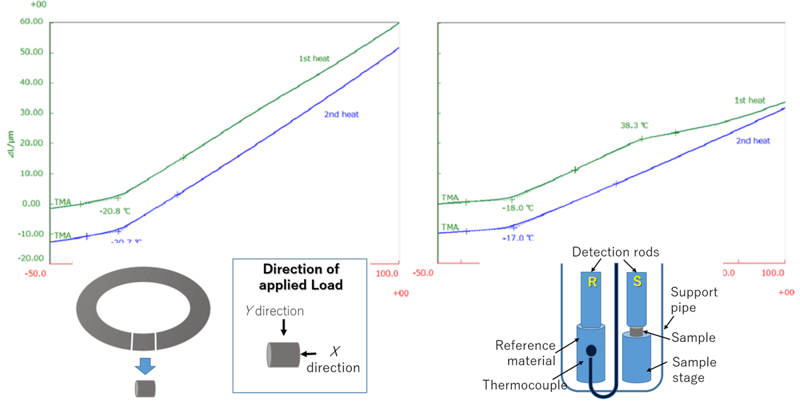
Evaluation of an O-ring by Low-temperature TMA
In this application, we demonstrate the use of low temperature TMA with differential type compression loading attachment to evaluate the mechanical properties of an O-ring measured in the X and Y direction.
Learn more >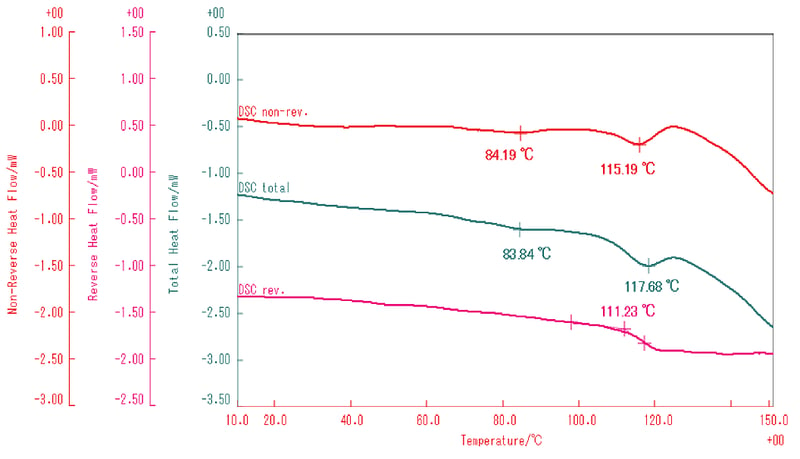
Measurement of glass transition of PMMA by dynamic DSC
In normal constant-rate heating DSC measurements, cycle measurements are sometimes performed, and the glass transition is confirmed from the reheating results. A glass transition was confirmed by dynamic DSC measurements of a PMMA sample.
Learn more >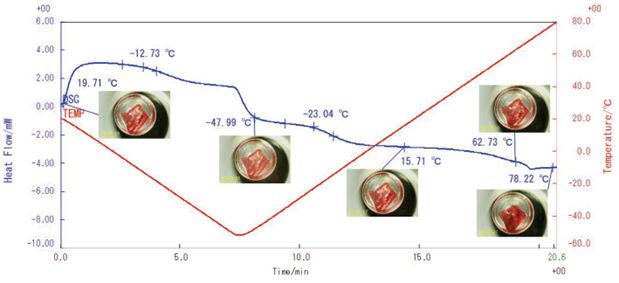
Thermal analysis of gummy candy by sample observation DSC~
In this application, we used a sample observation DSC to investigate the thermal behavior of gummy candies and resulting changes in shape.
Learn more >Our product groups
Choose a product category and explore more.

DSC
DSC is a technique that measures the change in thermal energy generated within a sample when the sample is heated or cooled according to a certain temperature program. DSC is an analytical instrument that is often used to investigate reaction temperatures and reaction energy amounts such as melting, crystallization, crystal transition, and glass transition.
Learn more >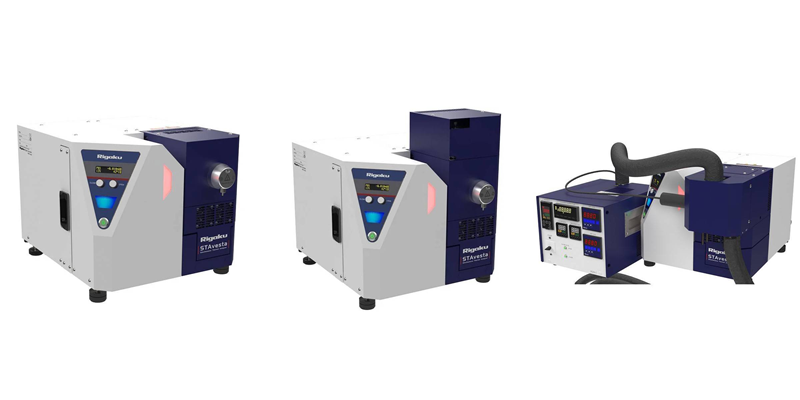
STA
STA is an instrument that simultaneously performs TG and DSC measurements. When a sample is heated according to a specified temperature program, TG detects mass changes associated with heating or cooling, while DSC measures heat flow (thermal energy) caused by endothermic or exothermic reactions and phase transitions such as melting or glass transitions.
Learn more >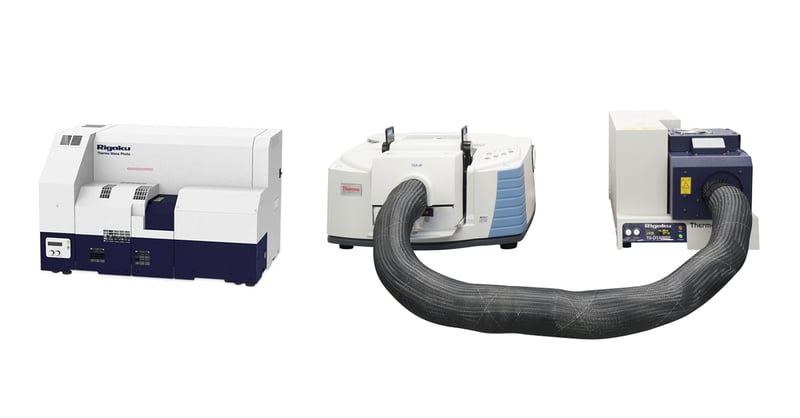
Evolved gas analysis (EGA)
EGA is typically used in materials science research and in the pharmaceutical industry to determine thermal stability, decomposition mechanisms, the nature of residual solvents and product safety.
Learn more >
TMA
TMA is a technique for measuring the change in shape of a sample when it is heated or cooled according to a temperature program while applying a non-oscillating load such as compression, tension, or bending to the sample.
Learn more >
Other thermal analysis equipment
Thermally stimulated current devices, other thermal analysis attachments, and other products not listed in the catalogue that meet customer requests.
Learn more >
Software
Measurement and analysis software for thermal analyzers and evolved gas analyzers.
Learn more >Featured products

DSCvesta2
The Thermo plus EVO3 series DSCvesta2 is an innovative measurement device that appeals to a wide range of users, from beginners to experts. Emphasizing user-friendliness, its design exudes sophistication while delivering cutting-edge performance.
Learn more >
DSC8231
Rigaku’s differential scanning calorimeters are heat-flux types. Several models are available depending on the maximum temperature and sensitivity difference. The high-sensitivity DSC8231 has several options, such as a LN₂ cooling system and an automatic sample changer.
Learn more >.jpg?width=800&name=TG-FTIR%20(1200).jpg)
TG-FTIR
Thermal analysis can identify at what temperature the sample has changed, but cannot identify what was vaporized from the sample. With simultaneous Fourier infrared spectroscopy (FTIR), evolved gases are qualitatively analyzed.
Learn more >Webinars

Contact Us
Whether you're interested in getting a quote, want a demo, need technical support, or simply have a question, we're here to help.
